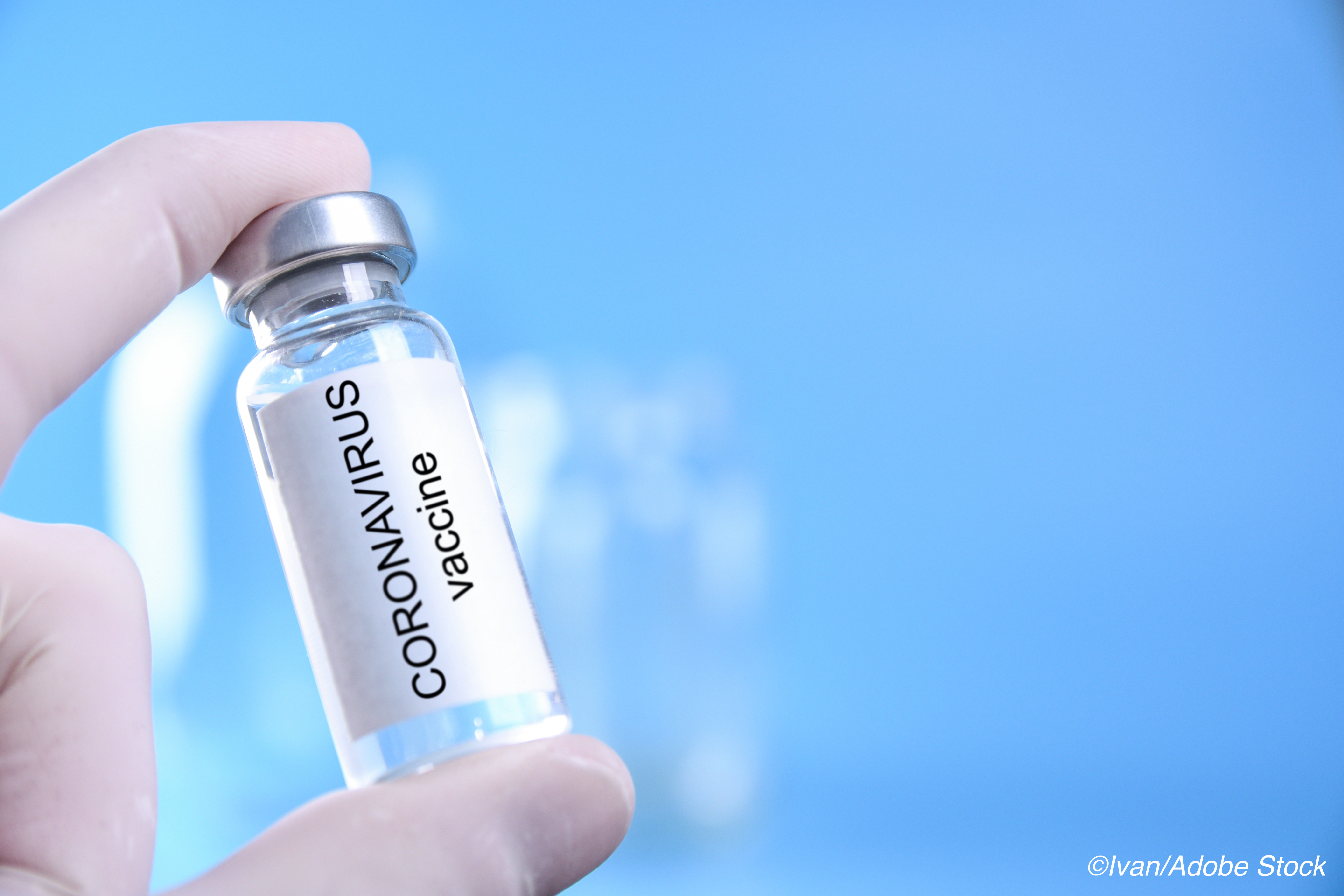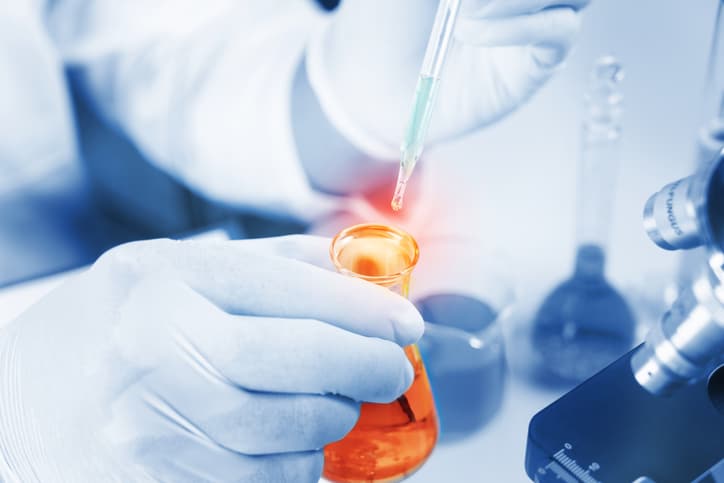 Early data on the SARS-CoV-2 vaccine CoronaVac, which is being developed by the Chinese company Sinovac Biotech, show the vaccine to be well tolerated with rapid antibody response; however, neutralizing antibodies among vaccinated patients were found to be substantially lower than among patients who had recovered from Covid-19.
Early data on the SARS-CoV-2 vaccine CoronaVac, which is being developed by the Chinese company Sinovac Biotech, show the vaccine to be well tolerated with rapid antibody response; however, neutralizing antibodies among vaccinated patients were found to be substantially lower than among patients who had recovered from Covid-19.
The phase I/II clinical trial results were not designed to address the vaccine’s efficacy, but, writing in the journal Lancet Infectious Disease, the researchers concluded that the findings “support the approval of emergency use of CoronaVac in China.”
“We found that two doses of CoronaVac at different concentrations, using different dosing schedules, were well tolerated and moderately immunogenic in healthy adults aged 18-59 years,” wrote researcher Fengacai Zhu, MD, of the Jiangsu Provincial Center for Disease Control and Prevention, Nanjing, China, and colleagues.
Phase III trials of the vaccine are ongoing in Indonesia and Turkey, as well as in Brazil, where the trial was briefly halted earlier this month due to an unspecified serious adverse event involving a participant.
The CoronaVac vaccine is one of close to a dozen experimental Covid-19 vaccines in late stage trials.
On Wednesday, Pfizer announced that based on the strength of phase III trials, the company will submit an application to the U.S. Food and Drug Administration for Emergency Use Authorization for its vaccine. The latest data from the late-stage trial involving 44,000 people showed the vaccine to be 95% effective for preventing the coronavirus, with over 94% efficacy in adults age 65 years and older.
And on Monday, Moderna Inc. announced that interim analysis of phase III trials showed its Covid-19 to be 95% effective for protecting against the virus.
Phase II/III trial findings led by researchers at the University of Oxford, UK, published this week in The Lancet, show AstraZeneca’s vaccine candidate to be particularly effective and well tolerated in older adults.
Sinovac’s CoronaVac inactivated SARS-CoV-1 vaccine candidate showed good immunogenicity in animal studies, including studies in macaques challenged with the virus.
The newly reported phase I and II clinical trials involved different manufacturing processes, with a cell factory process used in the phase I trial and a more scalable bioreactor process used in phase II to optimize the cell growing process.
“The immune response in the phase II study was substantially higher than in the phase I study, which might be due to the difference in preparation process of vaccine batches used in phase I and II resulting in a higher proportion of intact spike protein on the purified inactivated SARS-CoV-2 virions in the vaccine used in phase II than used in phase I,” Zhu and colleagues wrote.
In the phase II trial, which involved 600 participants, geometric mean titre (GMT) for neutralizing antibodies was similar at both doses (3 μg and 6 μg per 0.5 mL dilutent) tested. Participants received 2 doses of the vaccine at dose intervals of 14 days or 28 days.
The GMT in the phase II trial was 23.8 (95% CI 20.5-27.7) for the 3 μg group and 30.1 (26.1-34.7) for the 6 μg group 28 days after the second dose in the days 0 and 14 vaccination cohort, and 44.1 (37.2–52.2) in the 3 μg group and 65.4 (56.4-75.9) in the 6 μg group 28 days after the second dose in the days 0 and 28 vaccination cohort.
Neutralizing titres were significantly lower than those seen in 117 convalescent patients who previously had Covid-19 tested in the same laboratory (in 6 μg group in days 0 and 28 vaccination cohort, 28 days after second dose, GMT was 65.4 [95% CI 56.4-75.9] versus in convalescent patients, 163.7 [128.5-208.6]).
In a commentary published with the trial findings, Noar Bar-Zeev, PhD, of the Johns Hopkins Bloomberg School of Public Health International Vaccine Access Center, Baltimore, and Sonali Kochhar, MD, of Global Healthcare Consulting, New Delhi, India, wrote that the preliminary data on the CoronaVac vaccine leave many questions to be answered.
“Taken together and in absence of known correlates of protection for Covid-19, efficacy results from phase III clinical trials will be all the more important,” they wrote.
“Although immunogenicity was slightly lower in the low-dose groups than in the high-dose groups, for manufacture to stretch further—i.e., more vaccine doses being produced for the same amount of antigen (an important consideration given global need)—phase III trials will use the lower dose of 3 μg.”
They wrote that the use of a virus inactivation method used in influenza and other vaccines shows that “we can use existing tried and tested platforms to produce vaccines.”
“We know their limitations, but we also know that in previous incarnations they are usually acceptably safe,” Bar-Zeev and Kochhar wrote.
The difference in vaccine performance after the manufacturing change proves that “unexpected things can happen in science as in life,” they wrote. “We should expect the unexpected when considering vaccine safety, and vigilantly observe for unanticipated harms.”
- Early data on the SARS-CoV-2 vaccine CoronaVac show the vaccine to be well tolerated with rapid antibody response.
- Note that neutralizing antibodies among vaccinated patients were found to be substantially lower than among patients who had recovered from Covid-19.
Salynn Boyles, Contributing Writer, BreakingMED™
This research was funded by the Chinese National Key Research and Development Program and Beijing Science and Technology Program.
Several researchers were employees of Sinovac Life Sciences or Sinovac Biotech. No other competing interests were disclosed.
Editorial writer Naor Bar-Zeev reported receiving prior research funding from GlaxoSmithKline, Takeda Pharmaceutical and Merck-Sharp-Dohme.
Cat ID: 190
Topic ID: 79,190,254,930,730,933,190,926,192,927,151,928,925,934


